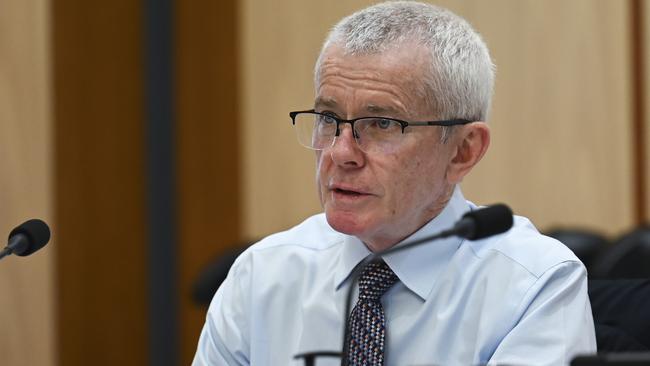ACCC voices its concerns ahead of the hearing into the blocked ANZ–Suncorp deal
As a hearing into the ACCC’s rejection of ANZ’s takeover of Suncorp approaches, the regulator has criticised the dominant position of the big banks.

The competition regulator has criticised the big four banks’ dominance in the Australian market on the eve of a crucial tribunal hearing for ANZ’s $4.9bn takeover bid for Suncorp Bank that could reshape the banking sector for years to come.
Speaking ahead of a nine-day Australian Competition Tribunal hearing starting Monday to review the regulator’s rejection of ANZ’s tilt for Suncorp Bank, Australian Competition and Consumer Commission officials told a parliamentary hearing examining branch closures that it had “longstanding concerns” about muted competition in the sector.
The competition regulator in August blocked ANZ’s purchase of Suncorp Bank, on grounds it would further diminish competition and lock in a “live and let live” banking culture.
In response to remarks by One Nation Senator Malcolm Roberts – who said the banks often acted as one massive bank owned by Vanguard and Blackrock, just with four different logos – ACCC executive general manager of mergers Tom Leuner voiced the regulator’s own concerns.
“The ACCC has had longstanding concerns about muted competition between the major banks and the impact that has on consumers, small businesses and all users of banks,” Mr Leuner said.
“That issue really came to a head in our consideration of the Suncorp matter.
“If Suncorp is brought into ANZ … we considered that makes the likelihood and extent of that muted competition – or in other words what is called co-ordination conduct – it increases the likelihood and extent of that. So we’re worried about (that).”

The big four banks control about three quarters of lending and deposit-taking in Australia. ANZ has the smallest share out of the four at about 13 per cent.
ANZ has argued the resulting increase in market share from the acquisition of Suncorp’s banking unit to about 15.3 per cent would not make a difference to overall competition.
But the question of “co-ordination” will be key to whether the transaction gets the go ahead from the tribunal. Another key question in front of the tribunal next week will be the likelihood that a regional bank such as Bendigo and Adelaide Bank could merge with Suncorp Bank, an option the ACCC favours.
Last month, Bendigo told the tribunal the regional lender was a credible suitor and had the “capacity to make a compelling offer for Suncorp Bank at a value accretive to shareholders of both companies,” according to a submission published on Friday.
Both Bendigo and experts engaged by the regulator had argued a merged entity with Bendigo would be a stronger competitor against the major banks.
The regional branch closures hearings, which started in March, have been told of community complaints about the banks forcing people to move away from cash and into digital services.
Asked by Senator Roberts whether the regulator was concerned about that evidence, Mr Leuner said the regulator also looked at those issues in the context of the corporate transactions it was asked to approve.
“Competition plays out as a lowering of service or an increase in fees,” he said. “The aspects you are talking about can be framed as a lowering of service … but we don’t have an ongoing monitoring role in relation to those issues.”
The Senate inquiry, chaired by Queensland Nationals senator Matthew Canavan, is examining the impact of bank closures on regional Australia, after banks closed up to 100 regional branches in the final quarter of 2022.
NAB this week said it would close five branches across the country in early 2024 as more people bank online and less are using bank branches. The decision came even after senators conducting the inquiry asked banks to halt closures until at least the end of the inquiry, which a few months ago was extended until May next year.
Over the past six years, the number of bank branches has fallen by 39 per cent in capital cities and 34 per cent in rural areas, according to data from the corporate regulator ASIC. Additionally, the number of ATMs has shrunk by a whopping 60 per cent across the country during the same period, as less and less people use cash.

As banks close more of their branches in regional areas to cut costs, the pressure is rising on the providers of physical and cash services, including Australia Post and Armguard, the Lindsay Fox’s owned cash transportation firm.
Australian post offices offer limited banking services for about 80 banks – and three of the big four majors – including bill payments, balance inquiries and withdrawals. The service, called Bank@Post, is crucial in regional areas where bank branches are scarce or have closed.
The chief executive of Australia Post, Paul Graham, told the inquiry the government business enterprise received about $90m last financial year from the banks and paid close to $30m of that money to its franchisees.
It said the nation’s post service was in talks with the banks to agree on a wider range of services, amid the ongoing wave of branch closures.
“What we are seeing is an increased demand for the availability of cash... and more small business services,” Mr Graham said. “They were not contemplated at the time when we originally struck the original Bank@Post agreement and we are working with the banks to explore expanding those services and how we would get remunerated.”
He said Australia Post was spending $90,000 per year to fly cash into remote areas like Kalgoorlie, which he said was “a challenge”.
When the last bank in town closes, Mr Graham said, small businesses turn to the Australia Post for cash, to manage multiple accounts or for simple things like changing their pin-codes, which is not able to handle.
Earlier in the session on Friday, the banks were labelled “bullies” by the chair of the franchise association for community post offices, who said a levy should be imposed on them to cover all the costs of servicing customers.
Licensed Post Office Group co-chair Scott Etherington asked the hearing: “How much longer should our members continue subsidising the banks? These bankers are not clever businessmen. They’re bullies.”
Mr Etherington said three of the big banks, excluding ANZ, paid the post office on a per-transaction basis for some services provided. They were not, however, paying for the costs of “being there” such as rent, electricity or insurance. “ANZ Bank refuses even to do that,” he said.
Mr Graham from Australia Post later explained the company paid a transaction fee to its franchisees, which did take into account those overheads, but said the pressure on
Australia Post licences was immense and growing.
Despite the growing problem, Treasury assistant secretary Robb Preston told the inquiry the banks were under no obligation to keep regional bank branches open.
“There’s no specific obligations the government imposes around stopping banks from closing (branches),” Treasury assistant secretary Robb Preston said.
The banks, however, have commitments under self-imposed banking code of conduct, which sets out standards around bank closures, he said. The code is currently under review by the regulator and is overseen by the Australian Banking Association’s Banking Code Compliance Committee.
Liberal Senator for Queensland Gerard Rennick told the inquiry the banks’ social licence should include a requirement “to provide essential services to all Australians including in the regions.”






To join the conversation, please log in. Don't have an account? Register
Join the conversation, you are commenting as Logout